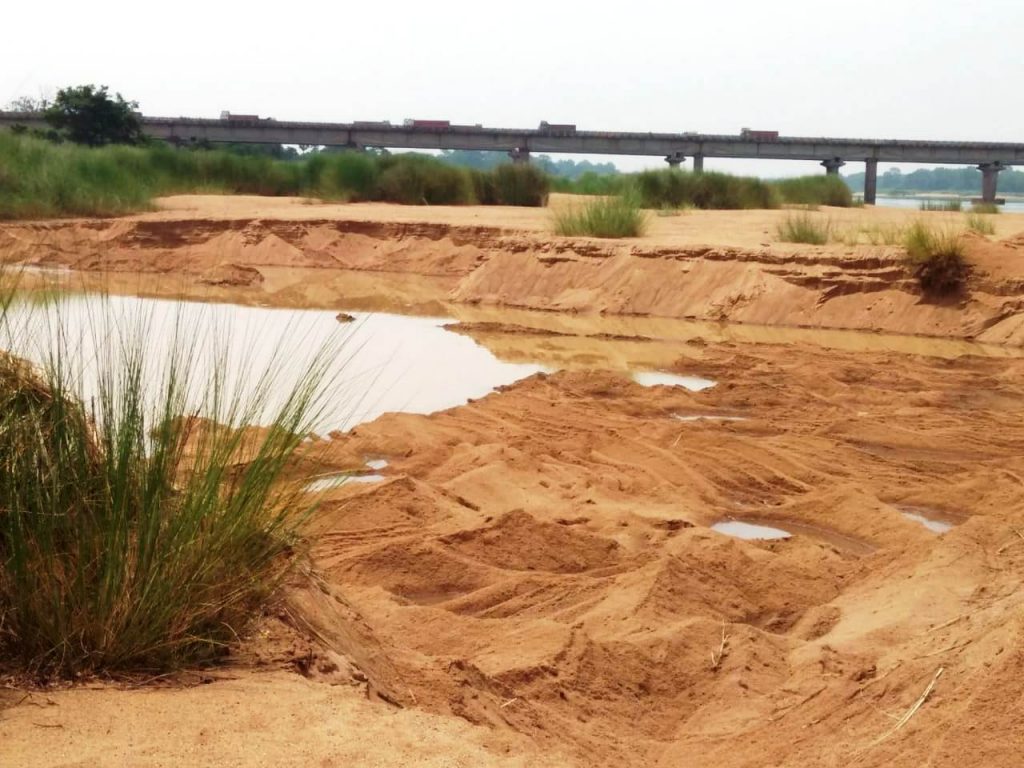Kendrapara: The diversion of water from the Kharasrota river system in Kendrapara district for a proposed mega drinking water project will adversely affect the fragile mangrove ecosystem in the Bhitarkanika National Park, green activists warned Friday.
The Bhitarkanika forests, the second largest mangrove ecosystem in the country, are now under severe threat due to the planned diversion of freshwater from the Brahmani river basin, environment activist Biswajit Mohanty said in a statement.
Mohanty, the secretary of environment group Wildlife Society of Odisha, alleged that the state government had ignored the need to conserve the wetland for posterity even as it is a notified Ramsar Convention site.
The proposed Rs 892-crore project will draw water from Kharasrota, a tributary of the Brahmani river, for piped supply to neighbouring Bhadrak district, where the groundwater is heavily saline.
The project has triggered vehement protests across Kendrapara district for a month. Prohibitory orders have been imposed in Balakati, Bharigada and Barunadiha panchayats in Rajkanika block till October 8.
Residents of Rajkanika, 125 km from Bhubaneswar, are demanding scrapping of the project over fears that the diversion would lead to the depletion of water levels in Kharasrota and a severe shortage of water for agrarian requirements in the region, where people are entirely dependent on agriculture.
Officials of the Rural Water and Sanitation Scheme, however, insist that the project, which requires 105 million litres of water per day, would only result in the diversion of less than four per cent of the water inflow of the river.
Kendrapara Sub-collector Niranjan Behera dismissed the apprehensions as “unfounded”.
Mohanty pointed out that the water diversion from the Rengali canals continued to pose a perceptible threat to the Bhitarkanika mangroves, adding that the diversion of water from Kharasrota would trigger irreversible damage.
The mangrove forests, spread over 195 sq km, have a high level of biodiversity since 62 of the world’s 73 mangrove species are found there. It is also the breeding place for endangered saltwater crocodiles.
The Gahirmatha Marine Sanctuary, which forms the boundary in the east, attracts the world’s largest population of olive ridley sea turtles for nesting.
Without the mangroves, the Gahirmatha sanctuary will become a “marine desert” and lose its richness and diversity, Mohanty said.
Hemant Kumar Rout, secretary of the Gahirmatha Marine Turtle and Mangrove Conservation Society, said mangrove is the protective barrier of the region against cyclones and tidal surges.
Rout asserted that the diversion of water would definitely lead to the depletion of water table.
It will affect mangrove ecosystem of Bhitarkanika and its flora and fauna, the activist told PTI.
Mohanty, meanwhile, underlined that after Farakka Barrage in West Bengal was commissioned, the Sundarbans mangrove forests were drastically affected.
In Bhitarkanika, the situation will be catastrophic for the mangroves in a bad year of monsoon, according to Mohanty.
Lack of normal flow of freshwater will increase the saline ingression upstream, affecting the local flora and fauna, as well as the livelihoods of farmers and fisherfolk dependent upon the Brahmani and Kharasrota river systems, he said.
Mohanty expressed apprehension of a quantum jump in man-crocodile conflict since the estuarine crocodiles would leave the core sanctuary area and migrate upstream once the salinity increases.
The state government is yet to reveal how it plans to ensure adequate flow of fresh water in the Kharasrota and Brahmani rivers that feed Bhitarkanika once the Rengali canals start drawing water.
Mohanty suggested that the state government should consider Hadgarh reservoir on the Salandi river or the newly-built Kanpur barrage on the Baitarani river as potential sources to meet the requirements of Bhadrak.
The “ecological flow” of freshwater to ensure the health of mangroves of Bhitarkanika should be maintained, the activist said.
PTI
